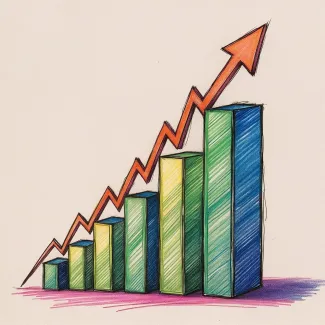
The Power of Starting Early: Why Time Is Your Best Investment Tool
The Power of Starting Early: Why Time Is Your Best Investment Tool
Imagine having an extra $100,000 in retirement just because you started investing $100 per month in your 20s instead of your 30s. That’s the power of compounding—a simple but profound concept that rewards time and consistency more than timing and amount.
Compounding is often called the "snowball effect." The longer your money is invested, the more it grows—because you start earning returns not only on your initial contributions but also on your previous earnings. For example, if you invest $1,000 initially and continue with $100 monthly contributions at a 6% annual return, your investment could grow to $18,207.33 over 10 years. That’s a gain of over $5,000 on a total investment of $13,000—without any changes to your monthly contribution.
Now consider what happens over the long term:
Time | Total Contributions | Future Value at 6% |
10 years | $13,000 | $18,207.33 |
20 years | $25,000 | $49,514.29 |
30 years | $37,000 | $106,474.08 |
40 years | $49,000 | $210,106.53 |
These numbers demonstrate how even modest, consistent contributions can lead to significant long-term growth.
A 6% return is often used as a conservative estimate based on historical averages for a diversified portfolio. Younger investors, with more time to weather market fluctuations, may be positioned to take on greater investment risk during their accumulation years. And realistically, most people increase their contributions as their income grows, making the above example a relatively conservative scenario.
Getting Started
If you're new to investing, regardless of age, the key is to start—regardless of how small the amount. Setting up automatic contributions, staying consistent, and regularly reviewing your strategy can help you build wealth steadily over time.
As the saying goes, “The best time to plant a tree was 20 years ago. The second-best time is now.” Starting early gives you more control, flexibility, and peace of mind about your financial future.
Next month we will discuss budgeting!

